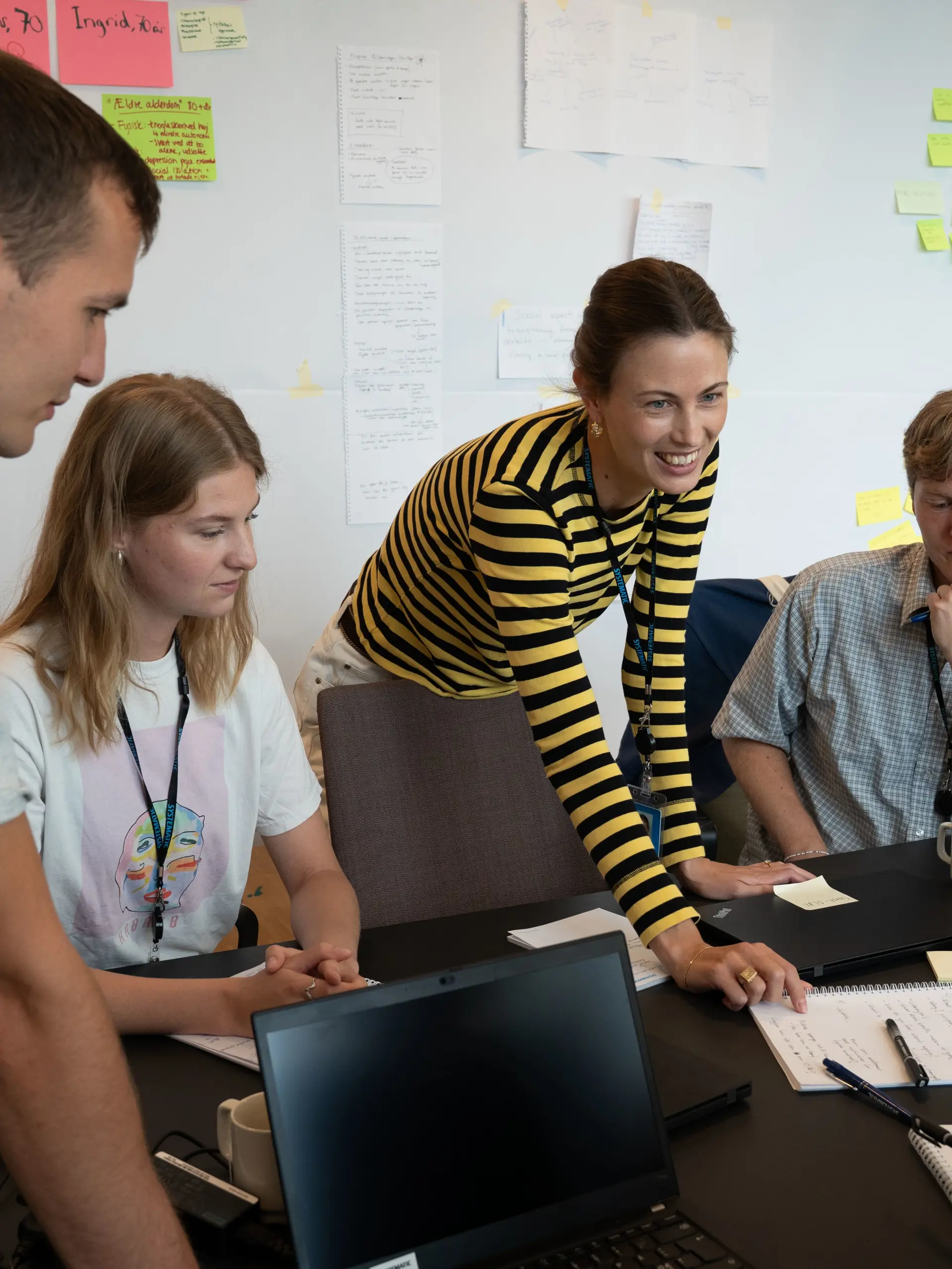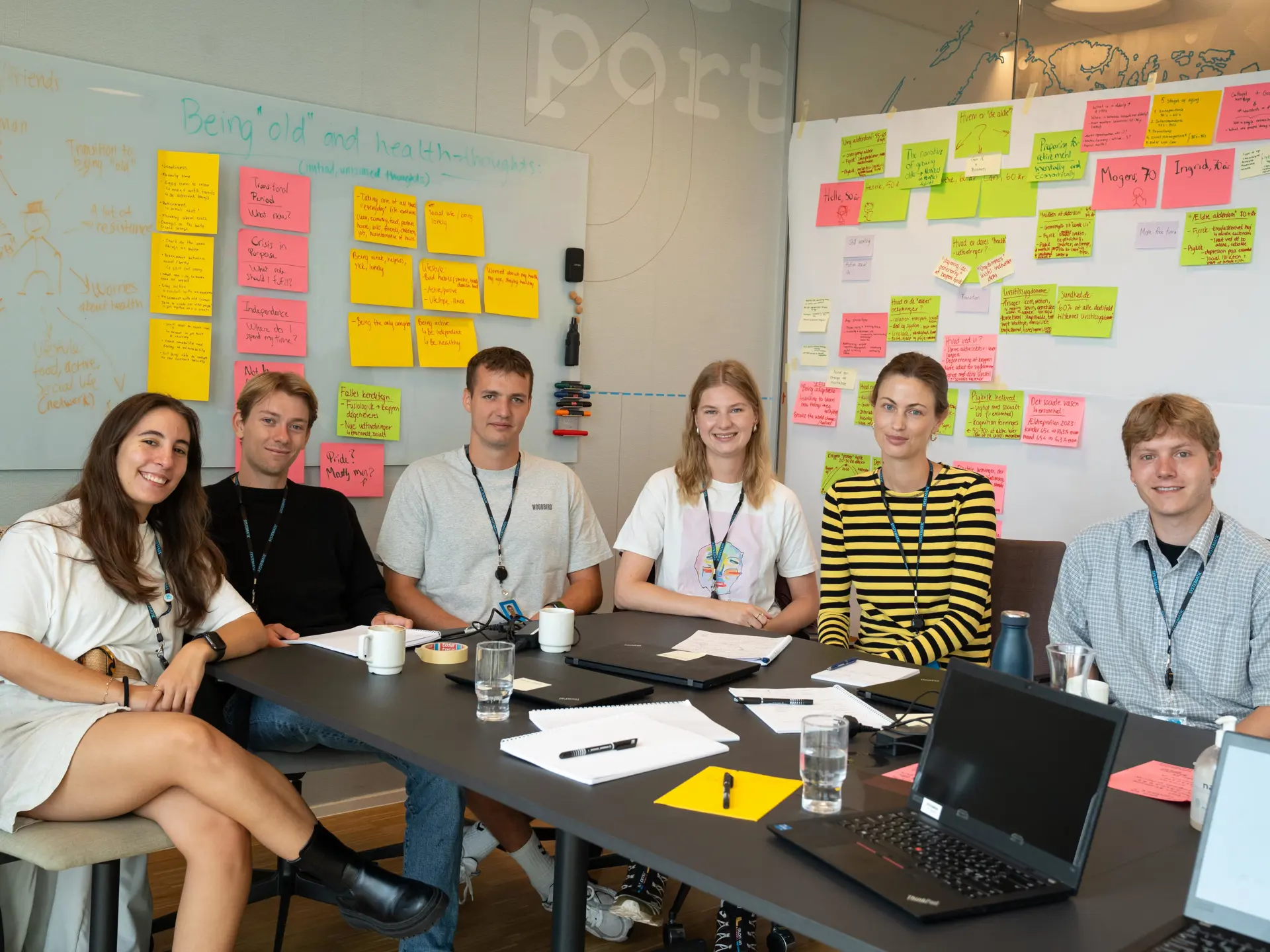Six students will help Systematic solve a wild problem
A group of selected students will together explore a major societal challenge from their respective academic perspectives – and pitch a project idea to a panel led by Systematic’s founder and chairman.
The wildest challenges in our society cannot be solved by a single academic discipline.
That is why it is far from enough to educate skilled analysts and anthropologists, philosophers and business developers, doctors and farmers, each buried deeply in their own track.
The problem-solvers of the future are trained to collaborate across disciplines, and now Aarhus University is dedicating an entire course of study to precisely that skill through a groundbreaking innovation project with the IT company Systematic.
This week, six selected students from different faculties are embarking on a programme in which, divided into two teams, they will explore wild problems – i.e. challenges that society has been struggling with for years. Their first task is to develop radically new solutions to promote health, well-being and quality of life for Danes aged 50–70 through monitoring and prevention.
How the students choose to tackle the challenge is largely up to them, but along the way they can draw on specialists in everything from innovation processes to product implementation. They will also receive courses in business development, access to a creative office environment, and free lunch.
At the end of the programme – which takes place in the 9th semester – they will pitch their project ideas to a product panel chaired by Systematic’s founder and chairman of the board, Michael Holm.
Afterwards, the students will have the opportunity to continue working on the project in their master's thesis in the 10th semester, before handing over their work to the next innovation team, so that the development work could potentially continue for years.
Breadth is a superpower

The six students on the first team have been selected based on motivated applications and come from very different parts of the university. For example, Patrick Gandrup Vendelbo is studying Sports Science at Health, while Olivia Stegemeier Bladt is studying Philosophy at Arts.
“At the university I have, among other things, worked with human physiology as we age. What consequences this has, and how we can counteract the changes. The project at Systematic is an opportunity to immerse myself even further and hopefully contribute with useful knowledge. At the same time, I am quite excited about having to work with people from other faculties and curious about their perspectives,” says Patrick Gandrup Vendelbo.
In her philosophy studies, Olivia Stegemeier Bladt has been very engaged with humanistic technology development – that is, the ethical, social and cultural issues connected with humanity’s embrace of technology.
“I look forward to contributing with a humanistic perspective, to ensure that technology is developed with people at the centre. The interdisciplinary collaboration is a unique opportunity to create sustainable solutions together,” says Olivia Stegemeier Bladt.
Systematic develops, among other things, IT solutions for hospitals and the care sector, so for Michael Holm the collaboration with Aarhus University is a welcome opportunity to bring entirely new perspectives into play.
“As a society, we are facing a growing challenge: we live longer, but more people are affected by lifestyle diseases that can be prevented if detected in time. This increases the pressure on the healthcare system and calls for solutions that bring health services closer to residents and make it easy to get a health check in everyday life. At Systematic, we believe that the best ideas arise when different disciplines look at the same problems from their respective angles – and that is exactly why this collaboration is so interesting to be part of,” says Michael Holm.
The aim of the innovation programme is at the same time to strengthen interdisciplinary collaboration between the faculties, the entrepreneurial spirit among students, the ties with the business community, and the contribution of knowledge to society.
“Aarhus University has a superpower, and that is our academic breadth. Seeing that unfold at one of our good partners will be a great pleasure,” explains Lone Ryg Olsen, Director of Business Collaboration at Aarhus University.
Facts:
Wants to make use of its academic breadth.
In the strategy towards 2030, Aarhus University has a vision to utilise its academic breadth to develop research-based solutions to complex societal challenges.
One of the seven strategic goals is to promote interdisciplinary collaboration, while another is to be a hub for innovation, business collaboration and research-based consultancy. This aligns with the EU’s recommendations for the so-called fourth generation of universities, which are able to combine teaching, research and knowledge exchange to address some of the wild problems in a turbulent world.








